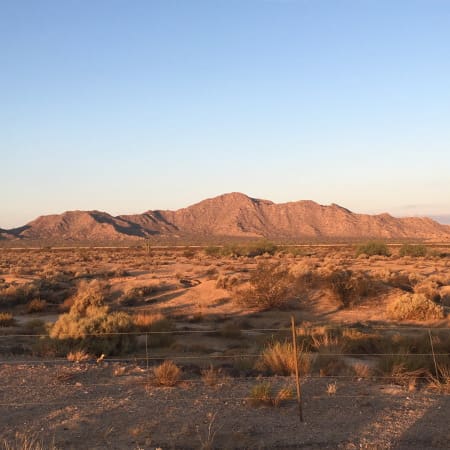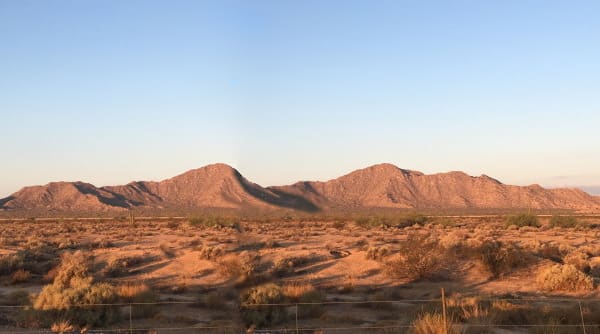The Desert in Carmelite Spirituality

“What did you go out to the wilderness to see?” (Matthew 11:7). These were Jesus’ words to the crowd. John took to the desert to draw people out into solitude to prepare their hearts for the coming of the Messiah. For many years the desert had become a place of encounter.
In 1 Kings 19:1-8, a long time before John’s appearance we learn of another prophet, a man of mystery, who appeared on the scene. After a bloody encounter with false prophets, Elijah fled from the anger of King Ahab and his wife Jezebel into the desert. On arriving there he left behind him his servant and went on alone into the midst of the desert. He entered, not only geographically but also the desert of his own spirit.
Can you identify with Elijah? Most likely you have not had a bloody encounter with false prophets, but have you suffered a sense of failure or experienced the feeling of being totally stressed out? Does it seem to you that no one understands your situation or is listening, not even God?
If your response is “Yes!” then you are not alone and have more in common with the rest of your fellow people then you realize. Even the Saints can testify to this in their life stories. Scripture affirms this also as we envision Elijah rising to the heights of a previous victory on Mount Carmel, now fleeing for his life, a broken man; he throws himself down under a desert tree, prays for death while falling into a deep sleep from which he hopes not to emerge. He lies there physically and emotionally exhausted.
Was God not listening? That was probably Elijah’s take on it. But while he slept God was arranging for the next segment of Elijah’s mission and journey.
“All at once an angel touched him and said, ‘Get up and eat.’ He looked around, and there by his head was some bread baked over hot coals, and a jar of water. He ate and drank and then lay down again.
The angel of the LORD came back a second time and touched him and said, ‘Get up and eat, for the journey is too much for you.’ So he got up and ate and drank. Strengthened by that food, he traveled forty days and forty nights until he reached Horeb, the mountain of God. There he went into a cave and spent the night” (1 Kings 19:5-9).
Elijah is the Old Testament figure, the man that Carmelites look to as their inspiration. He is the solitary figure who wanders into the desert to encounter himself, the demons he meets on his journey of life who try to distract him from his mission and, most especially, the God whose will he seeks to embrace.
Perhaps, like the rest of us, Elijah was unable to see the long-range view of God’s plan. To him, it seemed pointless to continue to live in Israel where the worship of the one living God had apparently failed. Far better that he be permitted to die. How often do we also see only the immediate results and take that to be the final outcome or end? God is never limited by our short-sightedness.
You and I stand in a place in history where we can read what has happened in the past. From our vantage point, we can look back on Elijah and say, “Elijah, why were you so worried? Look how it all turned out! Look at what you have done with God’s help. You have been the inspiration of prophets, the spirit of an Order [the Carmelite Order], a man admired by Jews, Christians and Muslims alike. God was with you all the time, leading and guiding you.”
+
Previously posted on the blog of the Carmelite Sisters of the Most Sacred Heart of Los Angeles, used with permission.
+
Art: Desert near Sacaton, Arizona, photographer Dylan Cuddy, 8 August 2016, The Mercy Run, used with permission. Prophet Elijah in the Desert, Dieric Bouts, between 1464 and 1468, PD-US author’s life plus 100 years or less.





